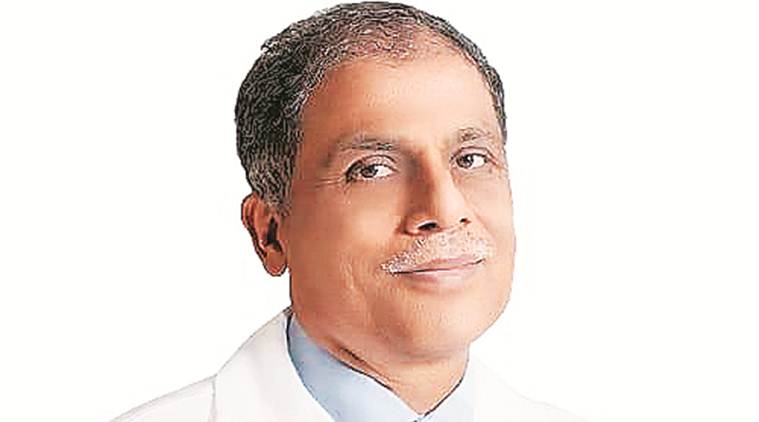 Dr Anil D’Cruz
Dr Anil D’Cruz
Across countries, use of tobacco, exposure to harmful UV rays and passive smoking appear to be the most recognised factors that can increase a person’s risk of cancer, according to the findings of a multi-country survey.
To mark the 20th anniversary of the World Cancer Day, the Union for International Cancer Control (UICC), which is the oldest international cancer-fighting organisation, commissioned a global survey to form an up-to-date picture of people’s experiences, views, and behaviour around cancer.
Conducted by Ipsos, an independent market research company, the survey includes more than 15,000 adults across 20 countries in the first multi-country survey on cancer perceptions in a decade and was conducted online from October 25 to November 25 last year.
Around the world, 9.6 million people died from cancer in 2018 while more than half of cancer deaths are happening in the least developed parts of the world. Dr Anil D’Cruz — the former director of Tata Memorial Hospital, Mumbai, and now the first Indian to become the president-elect of UICC, Geneva — told The Indian Express, “Results indicate that globally, almost three in five people surveyed say they are concerned about developing cancer in the future.”
People in the survey across Australia, Brazil, Bolivia, Canada, China, France, Germany, Great Britain, India, Israel, Japan, Mexico, Kenya, the Philippines, Saudi Arabia, South Africa, Spain, Sweden, Turkey, and the USA were asked questions pertaining to their concern about cancer, its impact on individuals and their families, their perceptions of risk factors and personal attitudes and behaviour, besides their expectations of their respective governments. “The results indicate gaps in cancer risk awareness and health promoting behaviour between higher and lower socio-economic groups,” he said.
Cancer awareness
The survey’s results show that there is generally a high level of cancer awareness among the surveyed population globally. Tobacco use (63%), exposure to harmful UV rays (54%) and exposure to tobacco smoke from others (50%) appear to be the most recognised factors that can increase a person’s risk of cancer. Meanwhile, a lack of exercise (28%), exposure to certain viruses or bacteria (28%) and being overweight (29%) appear to be the least recognised cancer risk factors.
Most people surveyed (87%) are aware of at least one of the main cancer risk factors. Seven out of 10 people surveyed indicate they have taken some steps to reduce their risk of cancer in the past 12 months. The most common action, signalled by one in three individuals, is increasing the consumption of healthy food, the results show.
“Individuals from a lower-income household bracket are less likely to recognise cancer risk factors than those from higher-income households. In all areas except tobacco use, this trend can also be seen when comparing people surveyed who have not completed a university education to those with university education,” Dr D’Cruz said.
The survey also indicated that a third of people had the belief that the most important measure by the government was to make cancer services more affordable.